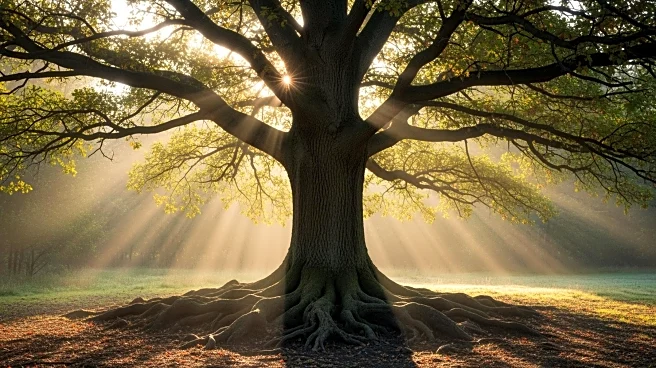Rapid Read • 6 min read
The BBC article provides a comprehensive overview of Afghanistan's tumultuous history, highlighting key events from the 18th century to the present. Afghanistan's modern state began with Ahmad Shah Durrani's empire, followed by a series of conflicts including the Anglo-Afghan Wars and the Soviet invasion. The Taliban's rise in the 1990s marked a period of strict Islamic rule, which was challenged by the U.S. intervention post-9/11. Despite efforts to establish a stable government, Afghanistan has faced ongoing insurgency and instability, culminating in the Taliban's takeover in 2021 after the withdrawal of U.S. forces.
AD
Afghanistan's historical conflicts have shaped its current socio-political landscape, influencing regional and global security. The Taliban's resurgence poses significant challenges for human rights and governance, with implications for international relations and security policies. Understanding Afghanistan's history is crucial for formulating effective diplomatic and humanitarian strategies to support its people and prevent further instability. The international community's role in addressing these challenges will be pivotal in determining Afghanistan's future trajectory.
The future of Afghanistan hinges on potential peace negotiations and international diplomatic efforts. The Taliban's governance and its interactions with global powers will be critical in shaping the country's socio-political environment. Humanitarian organizations and foreign governments may continue to provide aid and support to mitigate the impact of the Taliban's rule on vulnerable populations.
AD
More Stories You Might Enjoy










